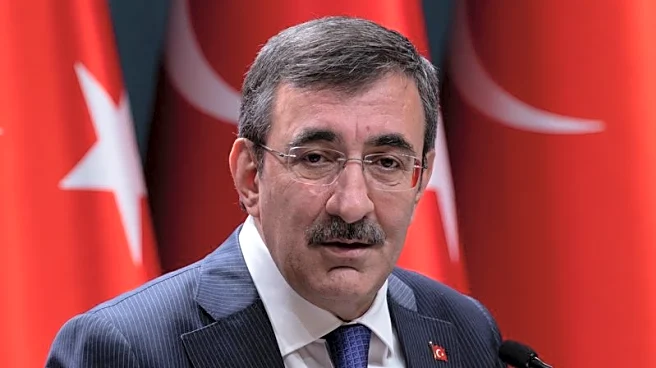What's Happening?
Japanese Prime Minister Sanae Takaichi has sparked a diplomatic row with China following her comments regarding Taiwan. Takaichi suggested that a Chinese attack on Taiwan could be considered a 'survival-threatening
situation' for Japan, a term under Japan's 2015 security law that allows for the activation of self-defense forces. This statement drew sharp criticism from Beijing, with China's foreign ministry labeling the remarks as 'egregious.' The situation escalated when China's consul general in Osaka made a controversial post on social media, which was later deleted. Both countries have lodged protests over each other's comments, highlighting the historical animosity between them.
Why It's Important?
The exchange between Japan and China underscores the fragile nature of diplomatic relations in East Asia, particularly concerning Taiwan's status. Japan's stance reflects its strategic interests and security concerns, given its proximity to Taiwan and historical ties with the United States. The situation could influence regional security dynamics, potentially affecting U.S. foreign policy and military strategy in the Asia-Pacific region. The incident also highlights the ongoing tensions between China and countries that support Taiwan, which could lead to further geopolitical instability.
What's Next?
The diplomatic spat may lead to increased military posturing in the region, with Japan potentially strengthening its defense capabilities. Both countries might engage in further diplomatic negotiations to de-escalate tensions, although the historical grievances could complicate these efforts. The situation may also prompt discussions within international forums about Taiwan's security and the broader implications for regional peace.
Beyond the Headlines
The incident reflects deeper issues of national identity and historical memory, as Japan and China continue to grapple with the legacy of past conflicts. The rhetoric used by both sides may fuel nationalist sentiments, affecting domestic politics and public opinion. Additionally, the situation raises questions about the role of social media in diplomatic relations, as posts by officials can quickly escalate tensions.











